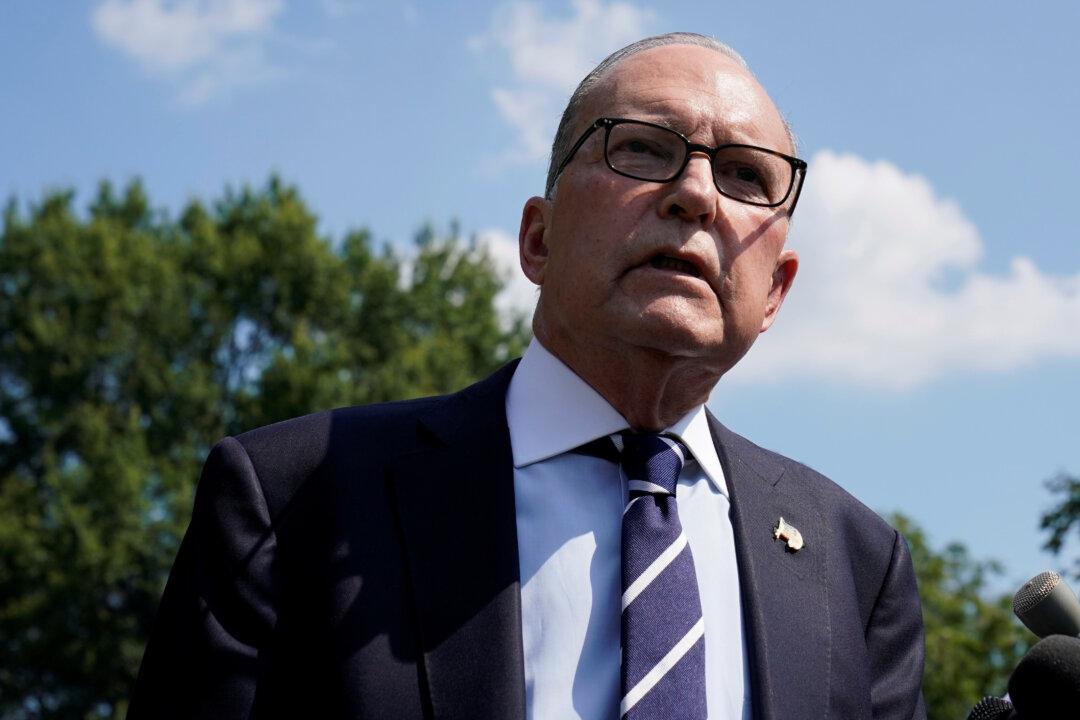White House chief economic adviser Larry Kudlow on Aug. 6 said President Donald Trump is flexible on tariffs depending on the progress of trade talks with China.
Tensions between the world’s two largest economies have recently escalated following Trump’s decision last week to impose new tariffs of 10 percent on $300 billion of Chinese imports. The Chinese regime responded that it would retaliate.





